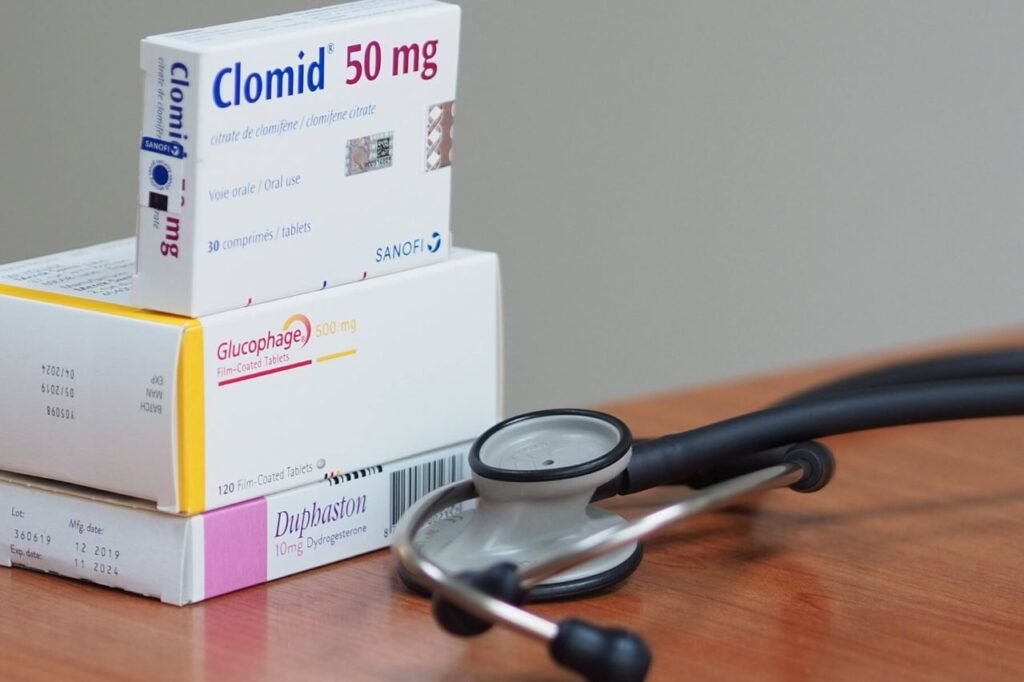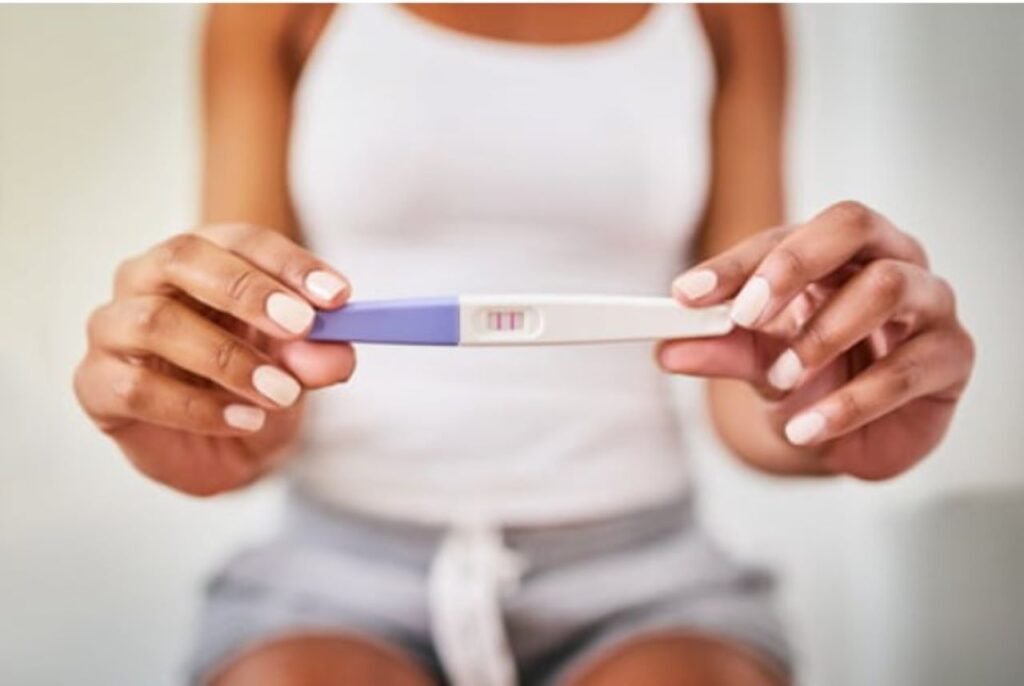
Intro
Navigating the path to becoming pregnant can be a challenging and emotionally charged experience, especially for those dealing with Polycystic Ovary Syndrome (PCOS), a common hormonal disorder that affects 1 in 10 women of reproductive age. Yet, achieving pregnancy with PCOS is possible, and understanding the best age for pregnancy can be advantageous. This blog post will delve into advice and tactics to combat PCOS-related infertility and delve into the ideal time for attempting conception when living with this condition.

Understanding PCOS and Its Impact on Fertility
Polycystic Ovary Syndrome, better known as PCOS, can turn the beautiful journey of conceiving into a rollercoaster ride, thanks to a blend of hormonal imbalances, sporadic menstrual cycles, and tiny cysts on the ovaries. These issues throw a wrench in the works of ovulation, the body’s natural rhythm of releasing eggs, making the path to pregnancy more like navigating through a maze. To add to the complexity, PCOS often brings along insulin resistance, mixing up the hormonal cocktail that’s crucial for fertility even further. This means that for women with PCOS, predicting ovulation can be as tricky as guessing the next winning lottery number, layering extra challenges for those dreaming of motherhood.
However, all hope is not lost. Understanding the complex ways PCOS affects fertility empowers women with the knowledge and strategies needed to tackle these challenges. Diving deep into the world of PCOS, from recognizing its signs to understanding its complex relationship with insulin resistance, helps demystify the challenges of infertility linked to this condition. The journey is undoubtedly one that demands patience and resilience, but it’s also one that lights a path forward with informed choices and positive lifestyle changes. Equipped with this deeper insight, women with PCOS can embrace their fertility journey with confidence and a renewed sense of hope.

The Importance of Early Diagnosis and Management of PCOS
Identifying PCOS early is crucial in managing its symptoms and enhancing your fertility journey. When you have an inkling that PCOS might be a part of your story, taking the step to consult a healthcare provider is crucial. This proactive approach can pave the way for a deeper understanding of your body and the ways PCOS may be affecting it. An early diagnosis opens up a realm of opportunities for effective management strategies tailored just for you.
Navigating through PCOS isn’t just about tackling fertility issues; it’s also about enhancing your overall well-being. With an early diagnosis, you have the power to implement lifestyle changes that can significantly impact your health. Embracing a balanced diet, incorporating regular physical activity, and mastering the art of stress management not only supports your fertility but also bolsters your body against the challenges PCOS may present.
Occasionally, lifestyle adjustments may need to be complemented with medication to help manage your symptoms and improve your chances of conceiving. Options like metformin can regulate your menstrual cycle and enhance ovulation, laying down a fertile groundwork for pregnancy. The journey through PCOS management is highly individual, and what works for one may not work for another. That’s why having a healthcare provider in your corner, guiding you through this personalized journey, can make all the difference.
By championing early diagnosis and proactive management of PCOS, you’re taking a stand for your fertility and overall health. Remember, you’re navigating this path with a wealth of resources and support at your fingertips, ready to help you forge ahead with confidence and hope.

Lifestyle Changes That Can Boost Fertility in Women with PCOS
Embarking on a journey toward enhanced fertility with PCOS might seem daunting, but there’s ample reason for optimism. Lifestyle changes have the power to significantly sway your fertility prospects in a positive direction. For a start, embrace a balanced, nutritious diet not only to support weight management but also to stabilize your hormone levels, paving the way for more regular ovulation cycles. Incorporating foods rich in antioxidants and essential nutrients can be particularly beneficial.
Exercise, too, stands out as a robust ally in the fight against PCOS-related fertility issues. Regular physical activity, tailored to your preferences and capacity, can help in reducing insulin resistance, a common adversary in PCOS. This not only aids in weight management but can also improve ovulation frequency.
Moreover, don’t underestimate the impact of stress management and adequate sleep on your fertility journey. Stress reduction techniques, such as yoga, meditation, or any activity that soothes your soul, can have profound effects on your hormonal balance. Coupled with ensuring you get enough restful sleep, these practices can create a more conducive environment for conception.
Additionally, exploring the world of supplements, under the guidance of a healthcare professional, can offer further support. Supplements like inositol and vitamin D have shown promise in enhancing fertility outcomes for women with PCOS, providing another tool in your arsenal as you navigate this path.
Remember, each step taken toward these lifestyle changes is a step closer to your dream of expanding your family. Working closely with a healthcare provider to tailor these adjustments to your unique situation can maximize their effectiveness and keep you moving forward with confidence.

Medical Treatments Available for PCOS-Related Infertility
Dealing with the complex issue of PCOS-induced infertility might seem daunting, but there is encouraging news. There are multiple medical therapies designed to address the distinct fertility complications related to PCOS, thereby providing options and hope for those aspiring to become parents.
For women grappling with ovulation challenges, fertility drugs like Clomid or Letrozole can act as powerful allies. By stimulating the ovaries to release eggs, these medications enhance the prospects of conception, serving as pillars of fertility treatment for countless women with PCOS.
If medicinal treatments don’t yield results, assisted reproductive methods like intrauterine insemination (IUI) or in vitro fertilization (IVF) could be employed. These strategies can drastically augment the chances of conceiving by orchestrating the conjunction of the egg and sperm in a meticulously controlled setting.
Additionally, for individuals battling insulin resistance—a frequent partner of PCOS—medications like Metformin or the newer Ozempic may be recommended. These drugs aim to better insulin utilization, which, in turn, can regularize menstrual cycles and bolster ovulation.
It’s critical to undertake this journey with a fertility expert well-versed in the complexities of PCOS. Together, a bespoke treatment plan catered specifically to your body’s requirements can be created, bolstering your chance of realizing your aspiration of parenthood.

The Best Age to Get Pregnant with PCOS
The journey to motherhood for those with PCOS often prompts questions about the optimal timing for pregnancy. Health experts frequently suggest that aiming for an earlier start may be advantageous for women with PCOS seeking to conceive. This recommendation acknowledges that fertility challenges can increase with age for anyone, but PCOS introduces specific hurdles due to its impact on ovulation regularity. However, pursuing an “earlier” timeline shouldn’t feel like a race or evoke undue pressure. Rather, it’s an opportunity to engage in meaningful discussions with your healthcare provider about your overall well-being, fertility aspirations, and the role of PCOS in shaping your path to pregnancy.
A proactive conversations can guide you in crafting a pregnancy plan that aligns with both your health requirements and life goals, considering professional achievements or significant relationships. Thanks to medical advancements, age is increasingly seen as a more flexible factor in fertility. With tailored support and treatment, many women with PCOS are successfully embarking on parenthood at various stages of their lives.
The key to moving forward with assurance is rooted in informed decision-making, including an understanding of how PCOS and age interplay. This knowledge empowers you to navigate your path to motherhood with clarity and confidence.

Support and Resources for Women with PCOS Struggling with Infertility
Facing infertility challenges with PCOS may feel overwhelming, but you’re not alone. A supportive community and a plethora of resources are readily available for you. If the journey feels solitary, support groups are available both online and face-to-face, providing a comforting space where empathy and solidarity flourish. These groups are perfect for exchanging stories, advice, or simply finding a listening ear from those who genuinely comprehend your struggles.
Moreover, consulting healthcare experts who are well-versed in PCOS and fertility issues can significantly change your strategy for overcoming infertility. They offer personalized counsel, present cutting-edge treatments, and supply the motivation to keep moving forward. The digital world is also brimming with resources—be it websites, podcasts, or books—focused on PCOS and fertility, offering accessible knowledge and encouragement right where you are. Embrace these tools and communities to feel informed and hopeful, reminding you that your aspiration for parenthood is within reach.
Remember, while your path is distinct, you’re not meant to navigate it in solitude. Armed with the right support and information, you can confront PCOS and infertility with confidence, backed by a community cheering for your victory.
